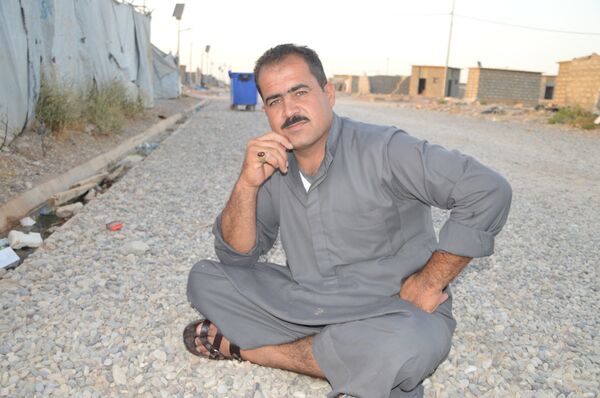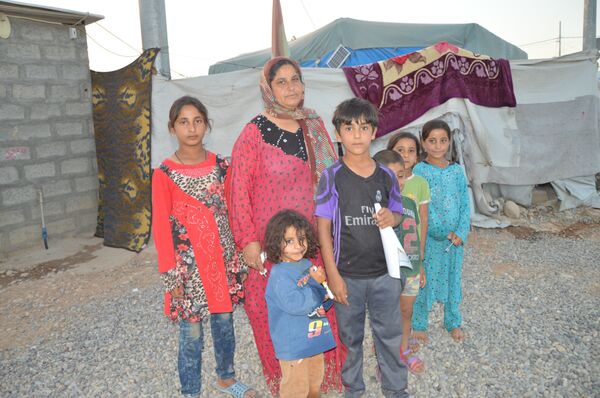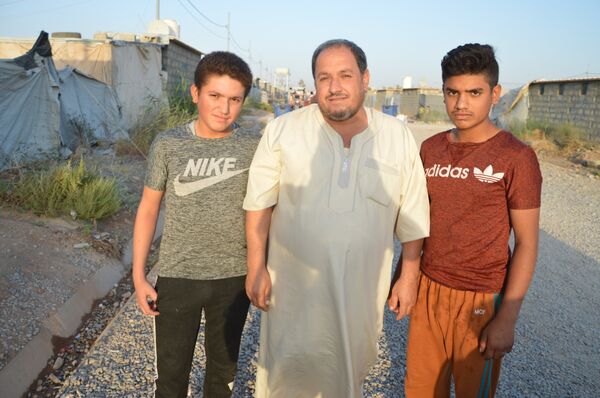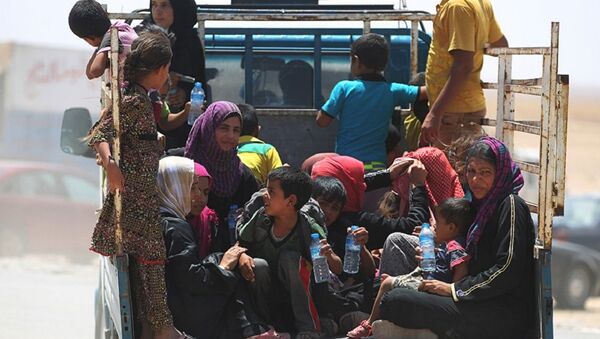Although several major cities in Iraq have been fully liberated from the Daesh terrorist group, many people still can't return home and have to live in refugee facilities.
"Tal-Afar was liberated from Daesh militants, but the city has not yet returned to normal life. This is why we can't get back to our homes. So far, the Iraqi Army… has not allowed us to return to these territories. But as soon as it is possible, we will come back right away. We miss our city very much, we miss our house," 34-year-old Rashit Alhem, who was born in Tal-Afar, told Sputnik.

Another Iraqi citizen, 54-year-old Husen İbrahim, described how he fled his village last year. Batilla, a village located in Mosul province, was captured by Daesh terrorists along with many other settlements in the region.
"Daesh killed a lot of civilians in Bartilla. Terrorists arrested Christians and Assyrians, tortured and killed them. They killed my brother because he previously worked for the Iraqi police. They tortured him for 40 days, and then cut his throat in prison," Ibrahim narrated his story.
Following the news about his brother's death, he and other members of his family were so scared for their lives that they fled to Erbil.
"We first lived in the downtown, but the rent was very high, and we decided to move to the camp. We want to go back to our house in Bartilla. However, we can't do this until the situation becomes normal. And even if we return, where will we live? We don't have our home anymore. Many buildings were destroyed as a result of the armed clashes and airstrikes of the coalition forces," the man said.
The story of a 43-year-old native of Mosul, Medina Milli, is similar to the others. The woman described to Sputnik how her family escaped Mosul when Daesh came to the city.
"We fled with my husband and our six children, because we were afraid that Daesh would kill us. They would have killed us, because my husband had been in the Iraqi military, so we decided to leave the city as thousands of other people did. Our current living conditions in the camp can be called good. We are Arabs, but we want to stay in Erbil, because it's safe here. We are afraid to return to Mosul, because the situation there remains unstable," the woman explained.

In his turn, 43-year-old Rabi Ebbas revealed how he and her eight children fled her home city of El Baaj.
"We had to give up everything. I had to sell my car for half of the price in order to pay smugglers that had taken us closer to Syria. We paid them $1,300," the woman said. "It is quite good here in the camp. All our needs are met and we are paid a certain amount of money every month. El-Baaj has been recaptured from Daesh, but the situation there is still unstable. In many places, there are mines and explosive devices. If the situation were normal, we would immediately go back," the woman concluded.

In 2014, Daesh seized large territories in northern and western parts of Iraq, which provoked a new wave of violence and instability in the country. Iraqi government troops have managed to recapture most of that territory, including the cities of Tal Afar and Mosul. However, life in these cities has no yet returned to normal, with many houses having been destroyed and local residents left homeless.
Tal Afar was liberated from Daesh after a nearly two-week operation in late August. This happened several weeks after the city of Mosul was freed from terrorists as a result of a massive nine-month-long military campaign in July.




